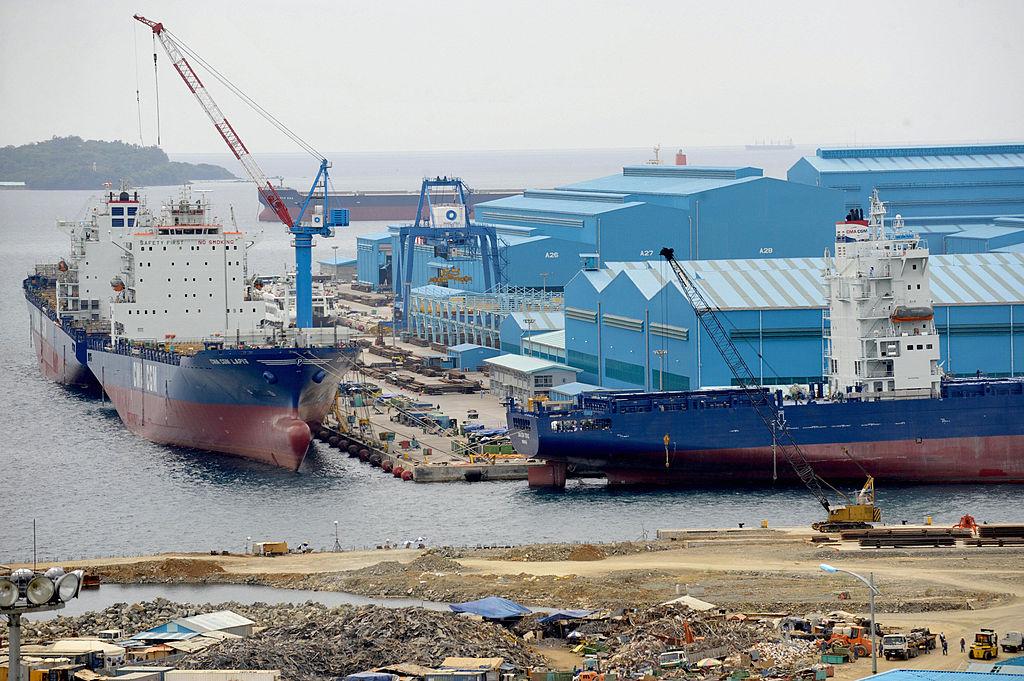Chinese companies are likely to be excluded from bidding to take over operations at the Philippines’ biggest shipyard.
The shipyard in question is located in the Subic Bay, which opens to the South China Sea, where Beijing has made broad territorial claims. Until 1992, Subic Bay was home to one of the largest U.S. deepwater naval bases in the region. During the Vietnam War, it served as a forward base for repair and replenishment for the U.S. 7th Fleet.




